- Main page
- News
"BLACK SOLDIER" WASTE-FREE TECHNOLOGY
10/13/2021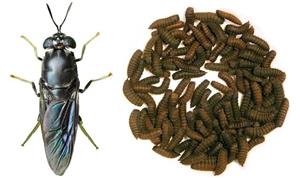
Flies help solve environmental problems. The scientific name is Nermetia illucens, a fly larva popularly called the "black soldier". It not only turns organic waste into a natural, pure fertilizer, but is also indispensable in the creation of protein-rich compound feed. Today, in many countries of the world, the production of black worms, found in South America, is rapidly growing.
In the Science and Technology Park of our university, the production of highly efficient products for the agricultural sector is currently being established, and we are talking about these beneficial flies. According to the technopark engineer at the educational institution, Ermek Tauasarov, this made it possible to solve three pressing problems at once: firstly, the disposal of organic waste, secondly, obtaining environmentally friendly organic fertilizers and improving the quality of vegetables and fruits and even grain crops, and thirdly, obtaining products rich in proteins.
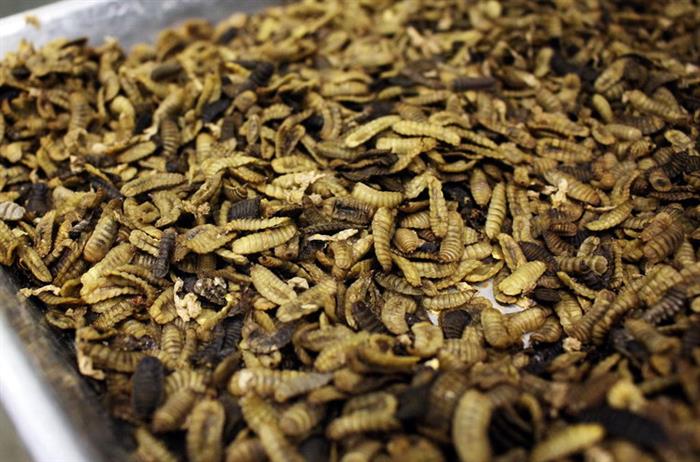
This universal fertilizer is in high demand in greenhouses and flower shops. Worms can be used as food for various domestic animals, fish, amphibians and reptiles, as well as some species of birds and rodents. Poultry feeding on the black soldier fly larvae lay 15-20 percent more eggs and do not get sick. Even a chick that has just hatched from an egg can feed on these worms from day one. When grinding and mixing the larvae of black flies and adding them to cattle feed, the incidence of diseases decreases and milk production increases. The meat of such cattle is more nutritious. Indeed, the body of worms contains all amino acids, including such biologically valuable substances as lysine and methionine. Also, the biomass of these worms is rich in enzymes, vitamins and useful microelements.
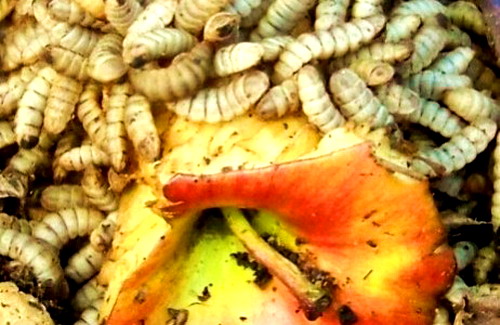
According to Ermek Kambarovich, the production of fertilizers using the larvae of the black soldier fly in Europe and Russia has only been gaining momentum over the past ten years. Previously, this technology was widely used in America, Indonesia, China and Japan. These worms use any organic waste as food, except plastic, iron and polyethylene.
Flies live in special insectariums. Their main needs are light, warmth, humidity. Here the humidity level should be 70 percent. The room temperature is maintained at 25-28 degrees. In addition, we regularly spray water with a special agent. It takes seven days for a fly's egg to turn into a worm. They grow in special containers where food is also placed. Food is prepared from bran and waste in a ratio of 1/3, - says greenhouse specialist Sabyr Temirbayev.
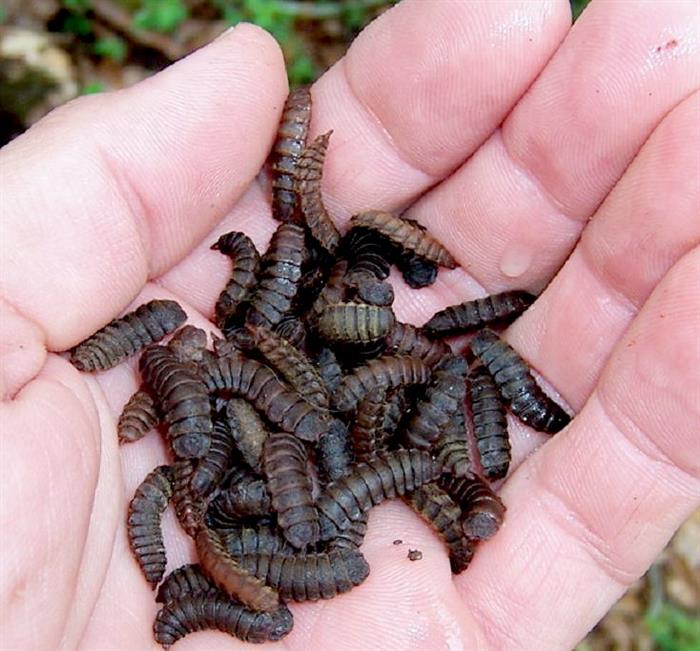
Many now understand that food must be environmentally friendly. Soils mixed with such biofertilizers are not only fertile, but also increase productivity by 2-3 times, and maybe even more. In the West, vegetables grown in the zoogum from the black soldier fly are much more expensive than manure or mineral fertilizers.
Eating pure, natural foods provides ample amounts of biologically active substances that help counteract the negative effects of the environment. Description of the project “Production of humus” in the Technopark: “In the process of life, worms transform the substrate into a complete protein (worms), and granules - into an environmentally friendly fertilizer - zoogum. The volume of the finished product reaches 40-60%, depending on the type of substrate and the living conditions of the worms. Thus, from one ton of organic waste, 400-600 kg of zoohumus and 100-200 kg of protein mass (worms) are obtained. It should be noted that due to the activity of worm cultures in organic waste taken out for disposal, the growth of bacteria decreased five times, and the number of pathogenic microorganisms decreased 28.5 times. Therefore, this technology should be considered as a biological method of sterilization. Simply put, a zoogum made from black soldier fly larvae is safer than fertilizers from animal or pig manure.
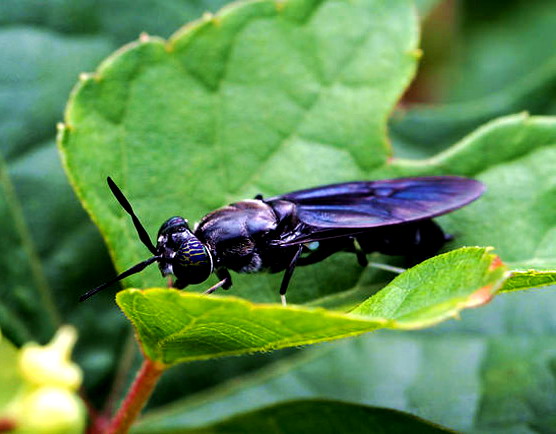
- Poultry factories produce thousands of tons of waste every month. To process at least 100-150 kg of waste per day, 20-50 kg of fly larvae are needed. These worms process not only food waste, but also animal and poultry manure. We are currently experimenting with various wastes as nutrients. For example, when bread is mixed with bran, we find that the worms grow faster. The main advantage of zoohumus is that it contains a very high concentration of macro and microelements. For example, for 10 liters of water, 20-40 g of zoo humus is enough. It should be noted that, compared to local flies, the "black soldier" does not contain toxins, because it feeds only on water, ”says Ermek Tauasarov.
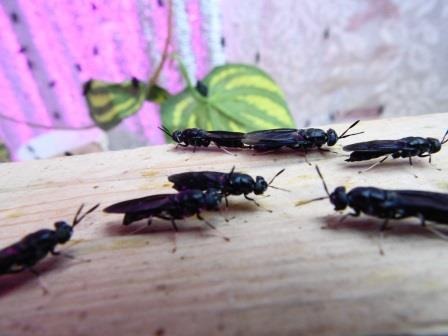
Studies of birds, pigs, fish, rats and other animals have shown that meal made from worms is no less nutritious than meat, bone or fish meal. At the same time, the cost of food will be reduced by 40%, and the cost of feed - by 33%.
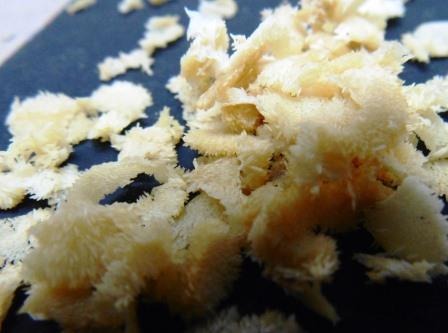
According to experts, the humus of mosquito larvae contains many nutrients, vitamins, antibiotics, amino acids and beneficial microflora, which are directly assimilated by plants. Improves the physical and chemical properties of the soil. It also prevents nutrient leaching, reduces exposure to harmful salts and phytotoxic elements, radionuclides and heavy metals. One ton of zoohumus replaces 15 tonnes of manure in terms of its ability to restore soil fertility. For example, 3-6 tons per hectare is enough. The advantage of zoohumus is that it prevents weeds from growing in the fields. If ordinary manure is used as fertilizer, the proportion of weeds will increase by 30%.
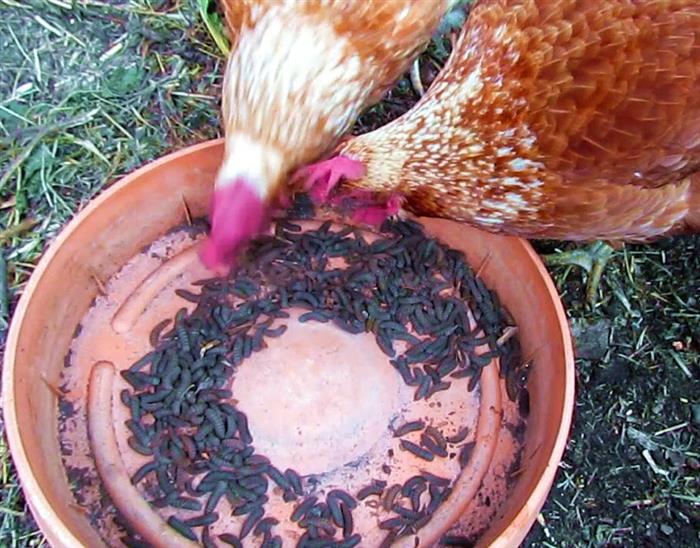
In addition, the content of humic acids in zoohumus is 1.5 times higher than in humus, and the amount of fulvic acid is four times higher than in vermicompost.
The use of such an efficient technology in agriculture will solve a number of problems. Firstly, it will reduce the amount of household waste disposed of in landfills, and secondly, it will allow for the natural recovery of chemically contaminated agricultural land and wastewater.
Camilla Duysen

